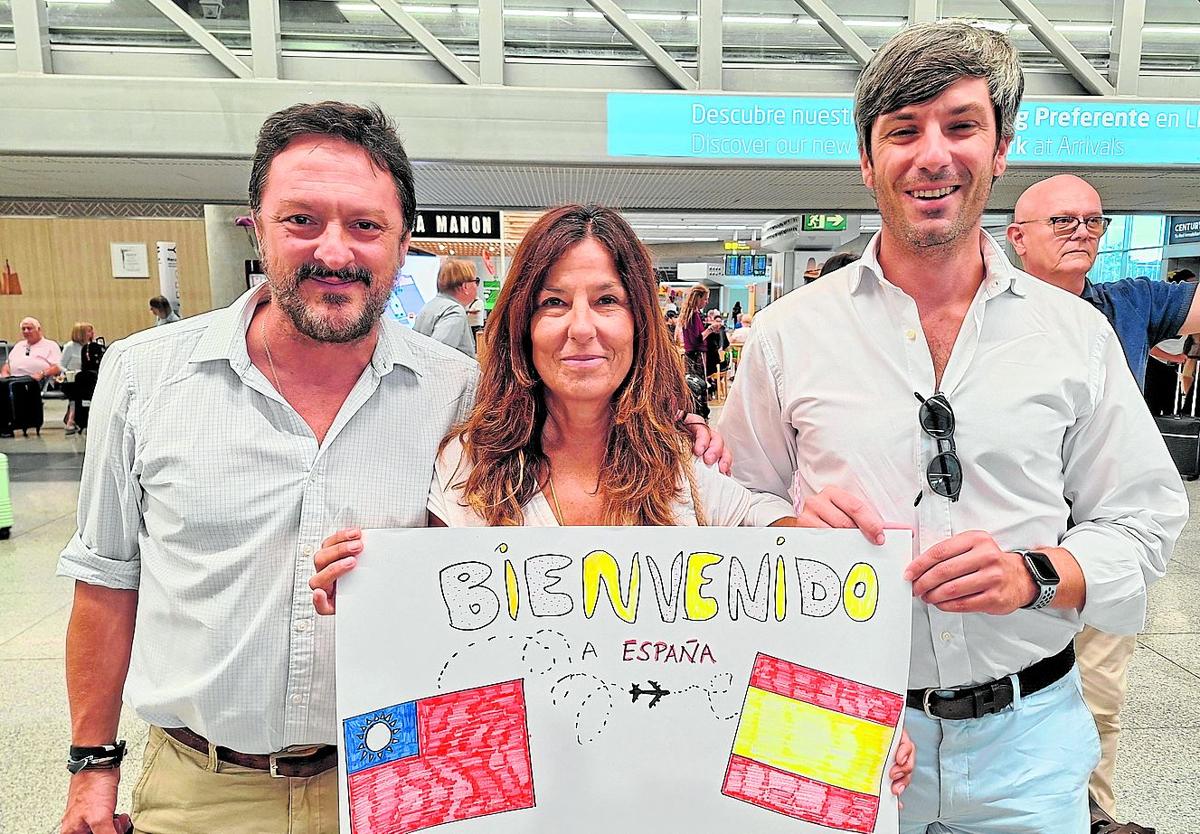Around the world to and from Marbella: the adventures of Rotary exchange students
The organisation on the Costa del Sol sends local young people abroad and teenagers from all over the world come here
David Lerma
Marbella
Monday, 16 September 2024, 09:36
Carter Hu is 15 years old and arrived in Marbella a week ago from Taipei, the capital of Taiwan. He speaks hardly any Spanish but next week he will start his 4th year of Spanish secondary education at a school in the town. At Malaga Airport he was met by his host family and two members of the Marbella Rotary Club, Federico Vallés and Alberto García, who act as ambassadors for this century-old international organisation, founded in the United States, which, among other things, organises student exchange programmes.
Carter appears smiling, wearing a red blazer that distinguishes him as a Rotary exchange student, although his parents do not belong to their organisation and neither does his host family in Marbella. Membership is not necessary for these young people to enjoy "one of the great experiences of their lives", explains Eva Alberca, president of the exchange committee of one of the three districts into which the organisation is divided in Spain.
"I was a host family before I really got to know Rotary," she explains. "It was thanks to a friend of mine in the club who had cancer and whose son had gone to study in the United States." As she couldn't have anyone at home, Alberca offered to take the girl in. "She was going to stay for three months, but in the end she stayed for six," she says.
Both incoming and outgoing students are assigned a tutor, who ensures their integration in the towns and cities where they live. Carter is an open-minded and inquisitive boy. He likes films, video games and basketball. Despite the language barrier, by the third day he was playing with a group of boys his age on a court near his home in the centre of Marbella. He likes Spanish food very much and, although he does not express it, he is very surprised by Spanish customs, such as people not taking their shoes off when they get home or the loud voices in conversations.
Cristina Lima, Carter's "foster" mother, sent her daughter Martina to California in August. She does not belong to the club. "I am very happy for the experience, for Carter and for my daughter," she says. Carter will stay with her until January and then move in with another Spanish exchange family from Marbella. In January, a student is due to arrive from Australia.
"Not all children are suitable. There are some parents who say they think they are going to fix their troubled child's life. That's not what the programme is for. Often the child is not interested. That's why we have orientation meetings," she said. The idea is for them to be good representatives of their country.
Rotary monitors the homes and families they are going to stay with and whether there is a genuine interest among the host family. "It can happen that some families just want the experience for their children and are not open to the experience of treating the person who comes as their own child. We filter all that out." School marks are not a determining factor, but they are important. "There are districts where they are more important, like in Switzerland. In general, we ask for an above-average school report," she said.
"The important thing is that they have an open mind and want to take part. Federico Vallés, from Rotary Marbella, said, "They come back changed, with more maturity", an issue that worries many parents. "When they leave, a teenager is leaving; when they come back, their priorities have changed," said Alberca, whose daughter Laura lived the experience in Taiwan.
"When they return to Spain, they come back talking about how much fun they had and their friends don't understand. In the end, they feel closer to their fellow exchange students", with whom they travel for a month in the host country after finishing school.
In the end, these friendships last. "You'll never be far from home if you make the world your home," Alberca added.
